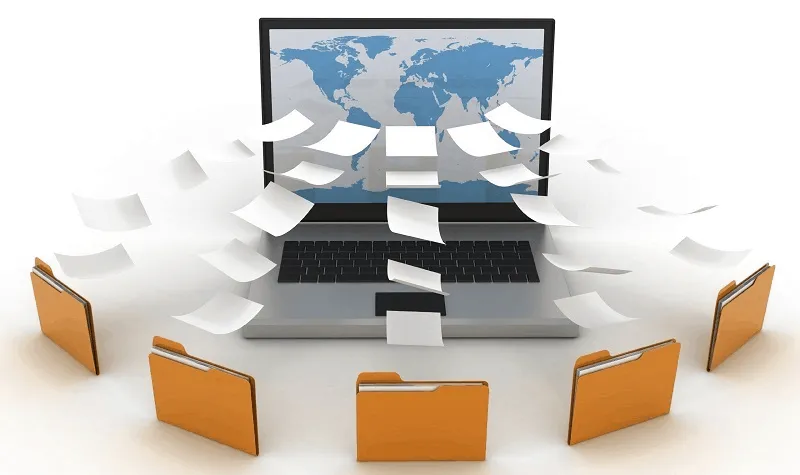What is a paperless office?
Paperless Office (also known as Electronic Office 4.0) is a fully integrated ecosystem of applications to serve the needs of information exchange, work processing, internal administration and document management. , documents, reports, etc.
The paperless office model was born along with the development of enterprise digital transformation, this is an important transition from the traditional paper-heavy management method to online management by electronic means.

Paperless office contributes to promoting the fast and comprehensive business digitization process.
5 benefits of a paperless office for businesses
Cost savings
Instead of having to spend tons of paper to store information, businesses can invest in modern information storage technologies. These storage technologies are not only affordable, but also save time when employees need to look up necessary information. In addition, the company can also save space for storing tons of papers.
.According to Mckinsey Global, 70% of businesses in the US are using electronic forms and implementing process automation and Data Visualization . This change has helped businesses save more than 120 billion USD in administrative and office costs each year.

With the paperless office model, businesses can save a lot of office operating costs.
Workflow automation
In fact, an employee spends 30-40% of working time every day to process documents and administrative procedures. A paperless office will free employees from this repetitive work, because all processes are automated.
Simultaneously, with the application of software, the tasks are assigned and monitored and monitored completely on the system, minimizing errors and lack of information. Managers can also update and retrieve reports in real time to make timely decisions.

The working process will be optimized and unified
Information security
According to a survey by McKinsey Global, 56% of managers believe that information theft only happens when businesses use paper documents. When data resources are stored with many levels of decentralization with a high level of security, it is not easy for hackers to attack and steal data.
When storing these documents on a computer system, businesses can install security programs to protect information. The most common security is to set a password, set access rights, and only designated devices or employees are allowed to open and use documents.

Besides, a paperless office also helps to minimize the loss of information due to lost papers and documents, wear and tear over time due to environmental conditions.
Optimizing working space
Storing documents into an electronic system will help businesses save a lot of space that is reserved for bulky file cabinets. The layout of the office will affect the motivation and inspiration of employees. Because eliminating these file cabinets will help businesses optimize space and give employees the best working environment.
Easy data exchange and transfer
With increasingly modern technology, documents can now be saved in digital form with software formats such as text, docx, pdf, etc. With the internet, these document files can be sent in just a few minutes. seconds, helping to save maximum time compared to transporting documents and documents manually.
In addition, the formatting software also comes with functions that support text editing such as suggestions, leaving comments, etc. This makes the process of exchanging ideas and editing documents become easier. more transparent and convenient.

Optimize data storage and transfer with a paperless office model.
Steps to build an effective paperless office for businesses
Digitizing information and documents of enterprises
Enterprises should classify and digitize their information and papers according to groups and categories such as:
-
Documents, personal notes: Planning the types of papers and documents of each individual.
-
Customer and partner information: Categorize and manage synchronous contacts of customers and partners.
-
Personnel Information: Store and digitize employment contracts, employee records (personal information, qualifications, health records, etc.)
-
Important company documents such as: Contract, company charter, certificate, etc.
This helps businesses to completely eliminate unnecessary archives, cut down on maintenance and storage costs, and avoid delays and bottlenecks in finding documents and retrieving information. .
To completely transform into a paperless office, businesses can start with investing in a document and information management system for all employees in the company. Choosing the right system for your size and specificity requires businesses to understand clearly about concepts such as cloud storage services or SaaS trends , etc.
Digitizing business operations
The next step to a paperless office is to digitize operations and work processes. All business operations such as sales, logistics management, production management, accounting, finance, etc. must be standardized with new technologies. This will help employees eliminate manual operations, speed up processing times for requests, proposals, approvals and increase work efficiency, gradually moving towards a paperless office model.












Replies to This Discussion